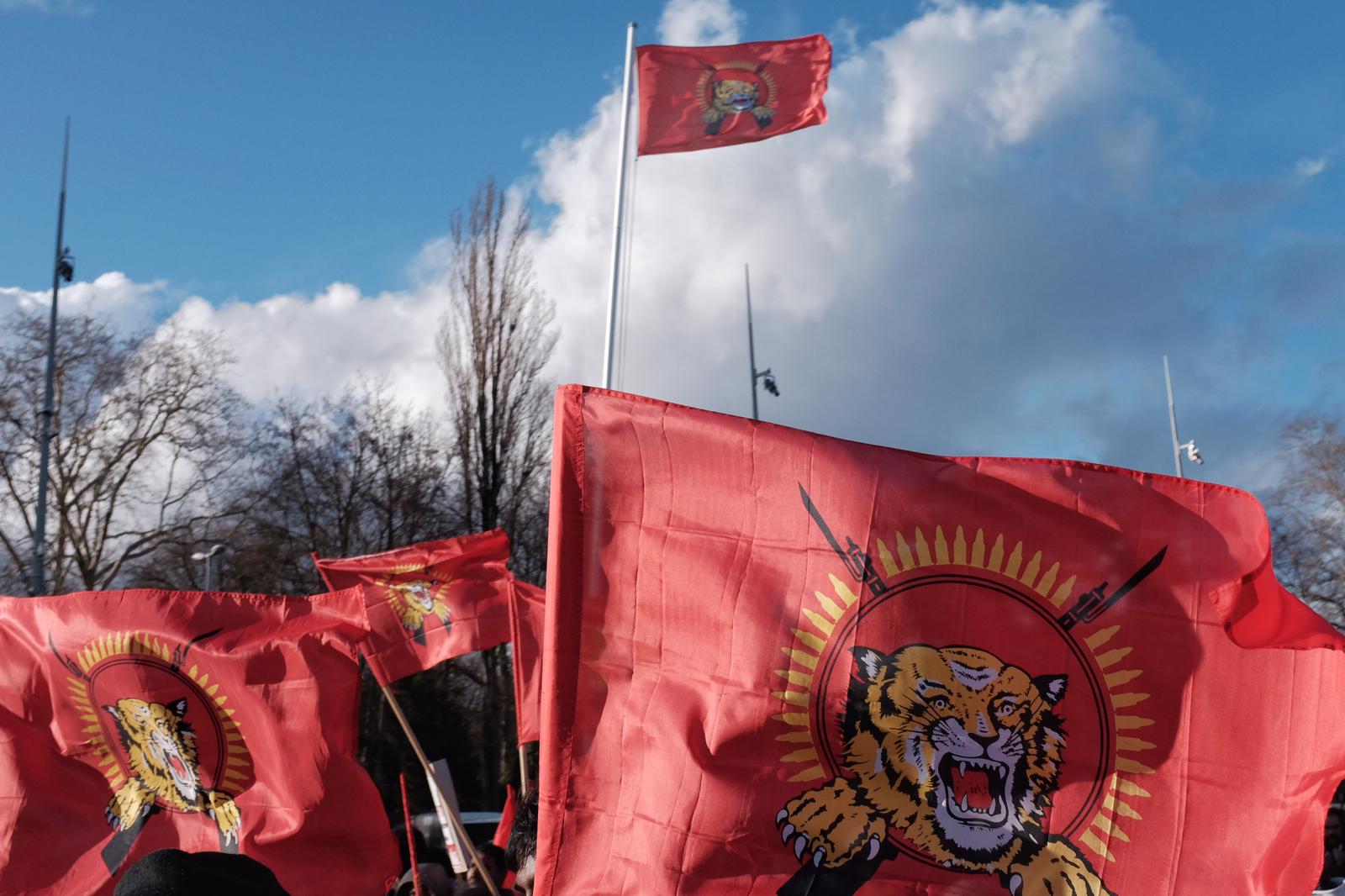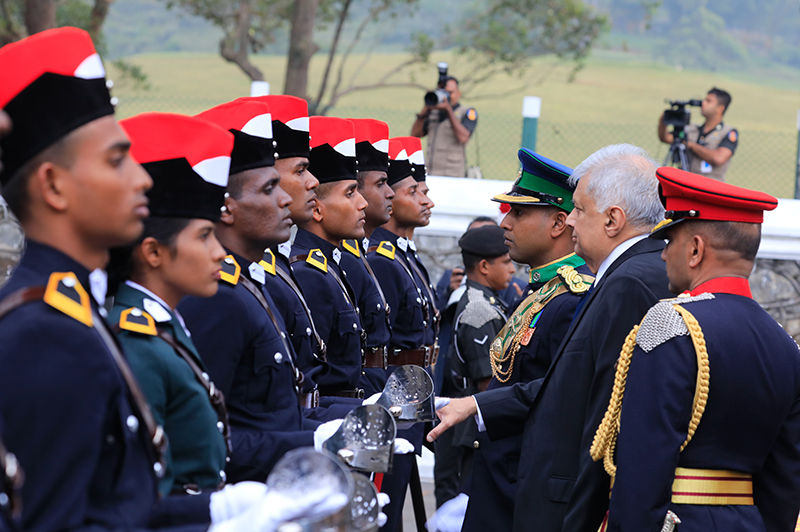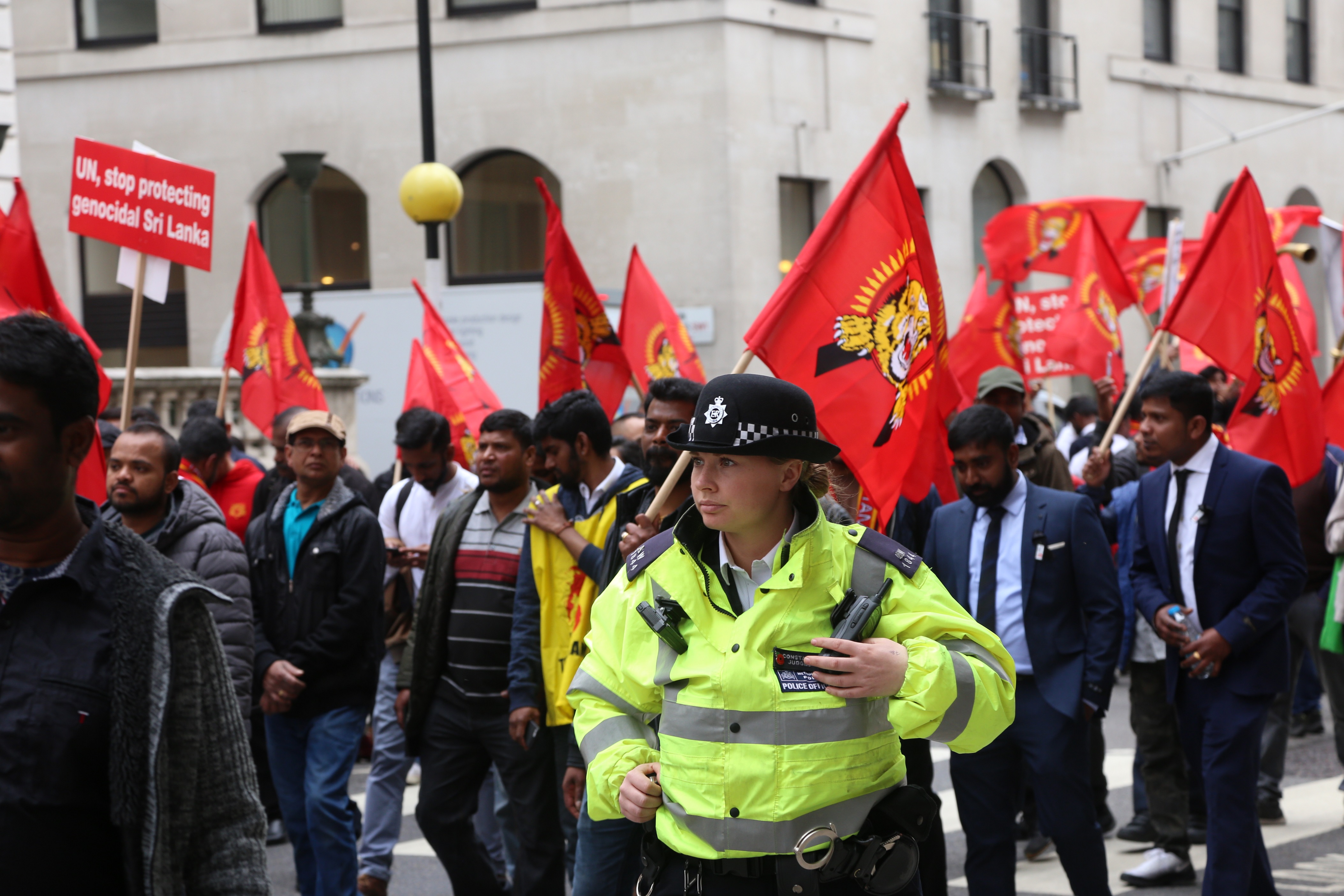
Tamil Eelam flags at a protest in Geneva, 2019
The UK Proscribed Organisation Appeals Commission (POAC) rejected an appeal by the Transitional Government of Tamil Eelam (TGTE) to lift the ban on the Liberational Tigers of Tamil Eelam (LTTE), yet details several errors made by the British Home Secretary, James Cleverly.
The Commission’s decision upholds an earlier judgement in 2021 which supported the Home Office’s assertion that the LTTE “continues to be concerned in terrorism”. The 2021 ruling followed an earlier finding by POAC that government’s earlier proscription was “flawed” and called for the decision to be reconsidered. The UK initially proscribed the LTTE on 29 March 2001 under the Terrorism Act 2000 (Proscribed Organisations) (Amendment) Order 2001.
Amongst the errors made by the Home Secretary was the claim that over 30 countries listed the LTTE as a proscribed organisation. There are only six countries which currently proscribe the LTTE, these are; Sri Lanka, India, Malaysia, the United Kingdom; the United States; and Canada. There are an additional number of European states which have listed the LTTE for sanctions.
The case’s appeal, brought by Arumugam and Others, made the following grounds for the appeal:
- Ground 1: The LTTE is no longer an organisation capable of proscription.
- Ground 2: There was no reasonable grounds for the Secretary of State to have formed the belief that the LTTE is currently “concerned in terrorism”.
- Ground 3: The Secretary of State erred in the exercise of her discretion o maintain proscription.
- Ground 4: The continued proscription of the LTTE is not a necessary, justified or proportionate interference with the Appellant’s right to freedom of expression, assembly and association.
Reliant on Sri Lankan intelligence
Mr Hayes who represented the appellants took issue with the government’s decision noting that it appeared to rely entirely on open-source information.
“Pretty much every word of every report relied on by the Secretary of State is more properly termed a Sri Lankan government source. Ultimately, the source was a police officer, an army officer, or counsel for the prosecution”.
The commission examined five specific incidents raised by the Joint Terrorism Analysis Centre, the first of which concerned an attempted assassination plot against Tamil National Alliance (TNA) politician, M.A. Sumanthiran.
In the incident, Sri Lankan police uncovered two pistols and a claymore mine however open source reporting overstated the number of suspects as 15, as opposed to the actual number of 5.
The commission found that in this incident, “we are prepared to conclude that this incident could reasonably provide no more than weak support for the proposition that a limited number of potentially relevant individuals were concerned with terrorism”.
This fed into a broader criticism advanced by Mr Hayes that highlighted that cellular-structure theory relied upon by the government failed to differentiate between individual lone actors and those acting on behalf on an organisation, which held a command structure.
He further relied upon the judgement of Lord Anderson KC, then Independent Reviewer of Terrorism Legislation, who maintained that the LTTE was not currently involved in terrorism. Despite this, the commission maintained that the non-conventional LTTE forces relied upon a cellular structure without the need of oversight.
A context of militarisation

This judgement comes in a context in which the Sri Lanka continues to suffer from heavy militarisation which continues to occupy much of the Tamil homeland, the North-East of the island. There is an estimated one solider for every seven civilians across the North-East, report the Oakland institution.
Despite this heavy military presence, the discovery of claymore mines and ammunition by Sri Lanka’s security forces is a frequent occurrence, particularly ahead of elections. In July 2020 there was a spate of arrests in the North-East, with the Sri Lankan security forces arresting more than 20 Tamils on charges of “regrouping the LTTE”. Amongst those arrested was a 17-year-old child. The arrests also came amidst campaigning for Sri Lanka’s parliamentary elections the following month, with a similar crackdown on Tamils across the North-East during presidential elections the previous year. Elected officials have also not been spared from these arrests.
Tamil civilians have been subject to arrests under Sri Lanka’s draconian Prevention of Terrorism Act (PTA) for offences ranging from posting on the social media platform Tik Tok to playing songs at political rallies.
Recognising the Tamil Eelam Flag
A Metropolitan Police officer at a British Tamil protest in London in 2019.
The commission maintained an understanding of the difference between the Tamil Eelam and LTTE flag, stressing that the Proscription Review Group “does not prevent the display of symbology associated with Tamil independence”.
Whilst noting an incident in 2018 in which a TGTE member, Mr Yogalingam, was arrested whilst protesting a speech by then Sri Lanka’s Prime minister, and current president, Ranil Wickremesinghe. The commission maintains that has been “no evidence of wrongful arrests associated with the display of the Tamil Eelam flag.
They maintain that to avoid confusion there must be continued “community engagement with the police in order to reduce the possibility of misunderstandings”.
Read the full judgement here.

